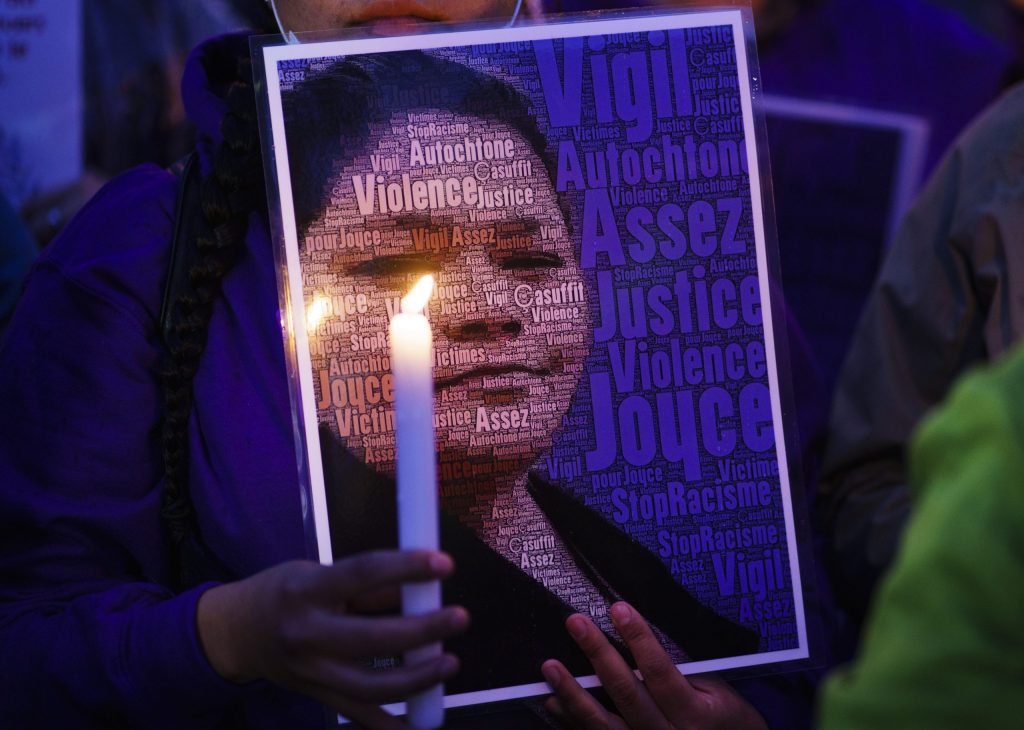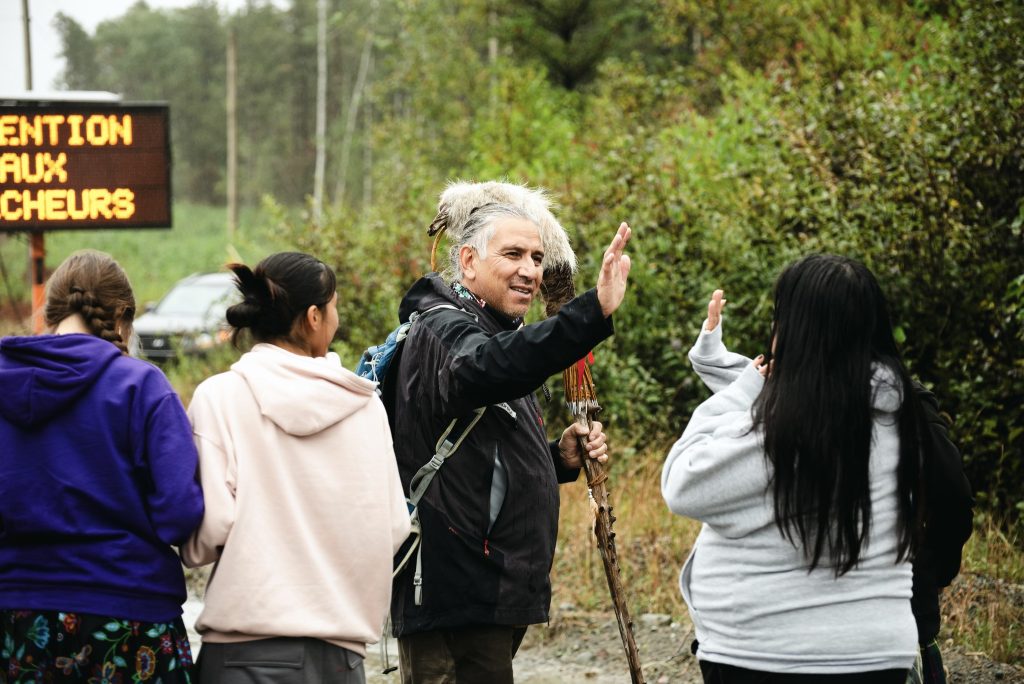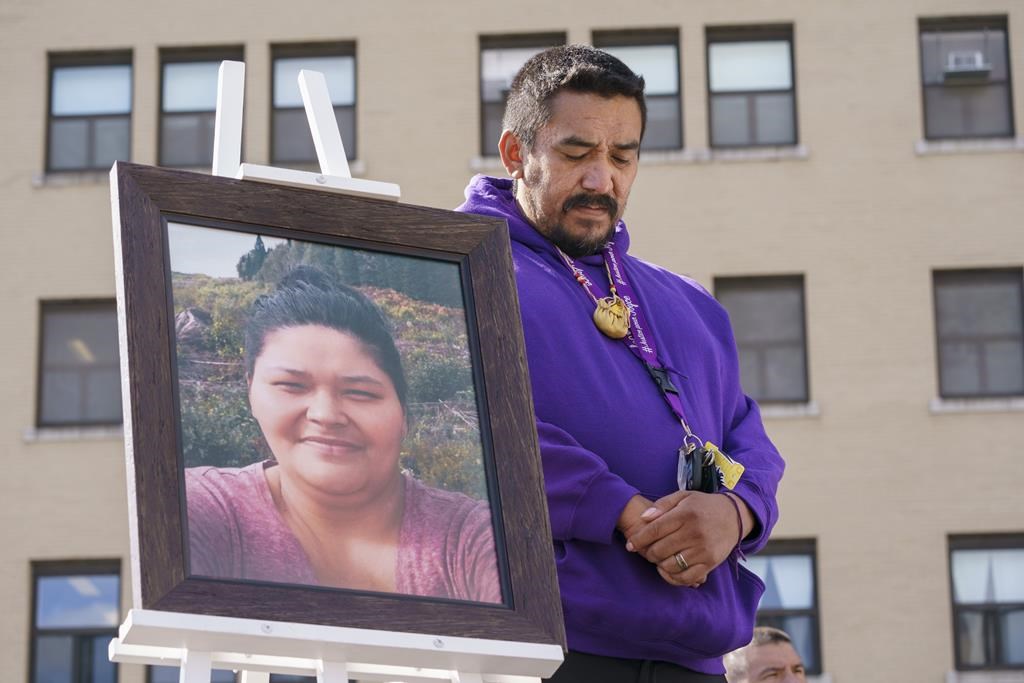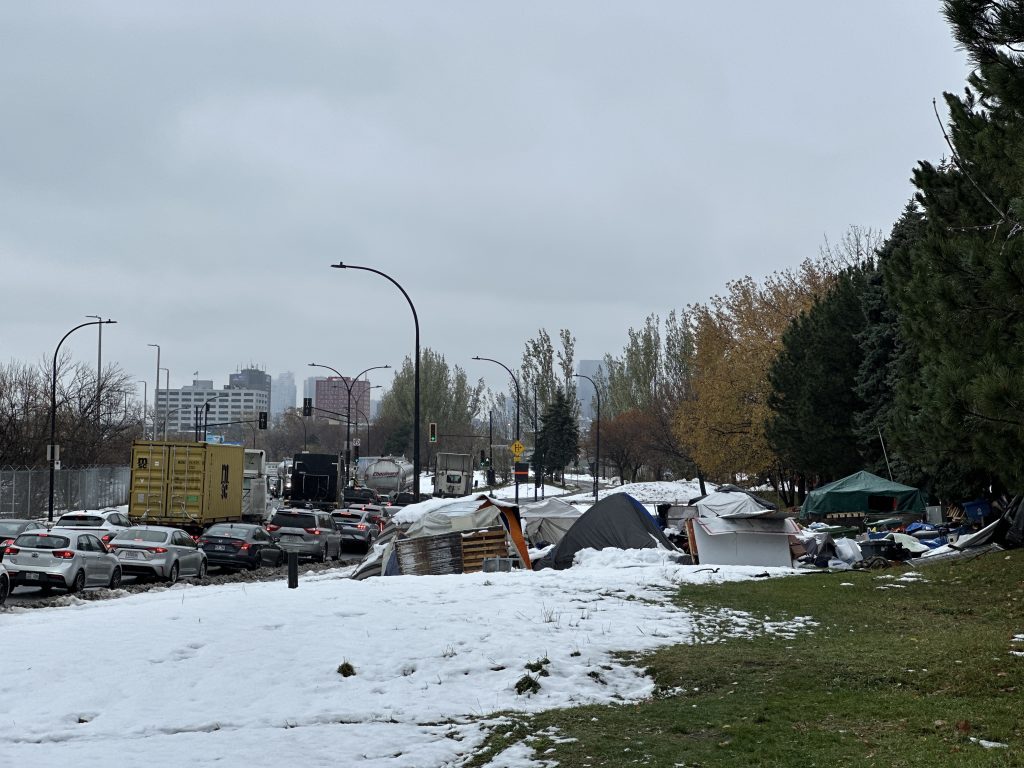Four years after Joyce Echaquan’s death, Indigenous health care workers look to make system culturally safer

Posted September 27, 2024 12:50 pm.
Last Updated September 27, 2024 6:43 pm.
Four years after the death of Joyce Echaquan, an Atikamekw mother of seven who died at a Joliette hospital, north of Montreal, where just moments before her death, she livestreamed as hospital staff said derogatory and racist remarks at her, Dr. Stanley Vollant, an Innu surgeon based in Montreal, says systemic racism remains a problem in health care.
“Still today in 2024, people are coming to hospital very late or not coming to the hospital because they are afraid they’re going to be not treated as well as the other people,” he said.
Dr. Vollant is the Chief Medical Officer of the First Nations of Quebec and Labrador Health and Social Services Commission (FNQLHSSC) and says there’s a lot of work left to do to make health care culturally safe for Indigenous people across the province.
He hopes to make a difference, as he’s been appointed to the Board of Directors of Santé Québec — the province’s new crown corporation for health care coming into effect in December.
“I will make sure with health, Santé Québec, that this framework going to be very effective that Indigenous people in Quebec will be safe when they are coming to consult in health care centres.”

Dr. Vollant says he wants to see watchdogs for Indigenous people, especially since Quebec did not adopt Joyce’s Principle which aims to guarantee access to healthcare without discrimination. The province also refused to recognize systemic racism
“For Indigenous people, it’s very important to name it to be able to work from there,” he said.
Josée Lavallée, Director of the Office of Social Accountability in Nursing at McGill University says it’s the responsibility of every person working in health care to provide culturally safe care.
“We know that anti-Indigenous racism exists within the health care system and this kind of put it on blast, which is tragic that a life had to be lost for us to wake up,” she said.
In a statement to CityNews, Ian Lafrenière, Quebec Minister Responsible for Relations with the First Nations and the Inuit says after Joyce’s death, “immediate” action was taken on cultural safety, “including by requesting that mandatory training on Indigenous realities be offered to all network employees. In addition, to better adapt services to the specific needs of Indigenous people, we have hired liaison officers and navigators. Several of these officers are already in place, and others will follow shortly.”
Lafrenière says, in Joliette, for example, an assistant to the CEO of the CISSS, as well as community members in decision-making positions, are actively working to improve access to care.
He adds they have offered training and support for Indigenous health clinic projects that include traditional medicine, and that the actions “put Joyce’s Principle into practice.”
“On systemic racism, the government’s position remains clear: we are combating racism in all its forms by prioritizing concrete actions, while integrating the essential principles of Joyce’s Principle into our laws. We are listening, and we are acting,” Lafrenière said.
Last year, Quebec introduced Bill 32, requiring health and social services to adopt a more safe, welcoming and inclusive approach when interacting with Indigenous People, including mandatory training on Indigenous cultural and historical realities. The bill is still being studied.
Dr. Vollant says Indigenous partners did not have a stake in Bill 32. “It should have been constructed from the beginning with the Indigenous organization, not just to rubber stamp a law,” he said.

Meanwhile, Dr. Vollant is taking part in his annual walk called Puamun Meshkenu in Innu, which means inspire Indigenous people to trace their own Path of a Thousand Dreams. It’s a 200-kilometre journey with 20 other people, spanning from from Kitcisakik to Pikogan, which is 600 kilometres northwest of Montreal.
It’s ending on Sept. 30 on the National Day for Truth and Reconciliation.
On Saturday, they’ll be walking in honour of Joyce.
“Joyce left us, we want that her spirit can stay in peace and to make sure that would not happen again,” he said. “We’re going to pray, we’re going to walk and we’re going to share the story with people.”

“We honour that strength and courage as a strong Indigenous woman every day,” said Lavallée. “We need to honour her at this time of year, but we need to be doing the work the rest of the year, too.”
“Our position is clear: we must guarantee all Indigenous people equitable access to health care and services in a culturally safe environment. This is non-negotiable,” Lafrenière said in a statement.
“It looks like it’s going to be very slow, but I’m sure that in a few years, Joyce [would say]: ‘I’m happy, I didn’t die for nothing,'” Dr. Vollant said.








